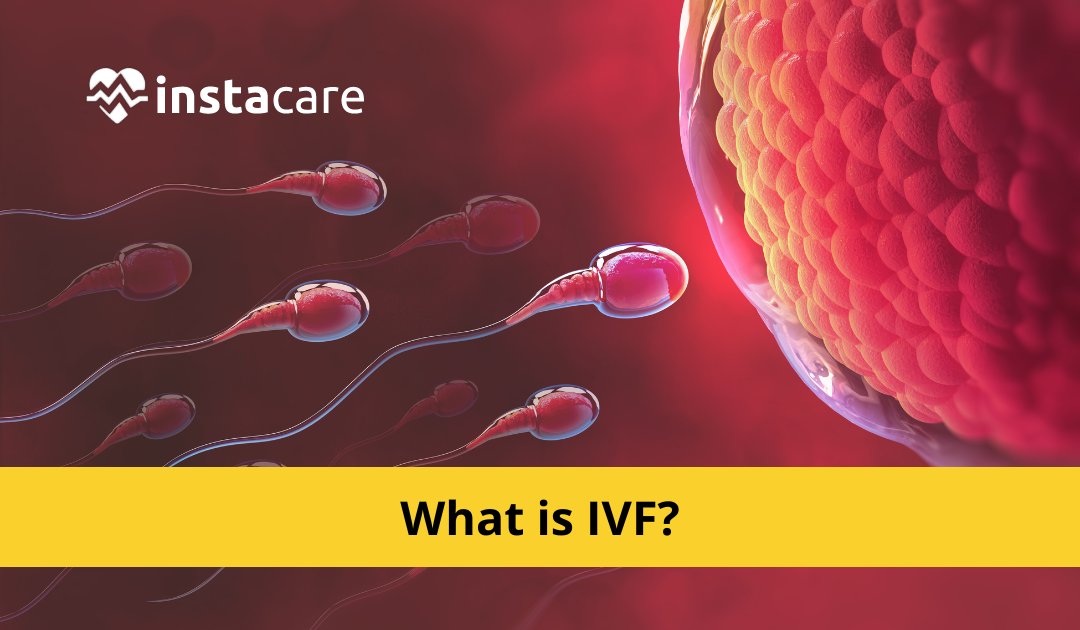In vitro fertilization can advance your chances of becoming pregnant while trying to conceive, but the procedure can seem scary if you don't know what to expect. Before you go to your first doctor, be aware of the following.
In vitro fertilization (IVF) decision-making is both thrilling and nerve-wracking. On the one hand, the process advances your chances of conception. Uncertainty and concern over whether something will work or not are stressful. Here's everything you need to know so that you can be ready.
What Is IVF Process, Or In Vitro Fertilization?
A set of intricate treatments known as in vitro fertilization (IVF) are used to help with fertility, prevent genetic issues, and aid in child conception.
In IVF, mature eggs are removed from ovaries and fertilized in a laboratory using sperm. The fertilized egg (or eggs) is/are then transported to a uterus. IVF cycles are completed in roughly three weeks. When these processes are divided into separate steps, the process can sometimes take longer.
The IVF success rate is higher, and the most successful type of assisted reproductive technology is IVF. The process is possible using the couple's sperm and eggs. A known or unknown donor's eggs, sperm, or embryos may also be used during IVF. A gestational carrier, a woman with an embryo implanted in her uterus, may occasionally be employed.
View More: How To Get Pregnant With Twins
How IVF Treatment Is Conducted
Here are some things to anticipate from IVF:
Step 1: Stimulation Of The Ovaries
To encourage the production of mature eggs from your ovaries, fertility drugs will be administered to you. Progesterone, estrogen, and DHEA may also be administered in addition to the other hormones.
Step 2: Monitoring The Patient
Your ovaries will be inspected through transvaginal ultrasound, and blood samples will be collected to measure your hormone levels.
Third Step: Growing Eggs
Two days before collecting your eggs, you receive an injection of the hormone HCG to help your eggs reach maturity.
Step Four: Egg Recovery
To recover your eggs, a straightforward surgical technique is needed. This procedure uses ultrasound imaging and a specialized needle to extract the eggs from the follicles, lasting around 30 minutes.
Step 5: Gathering Sperm
The preparation and collection of sperm from the male partner or a pre-arranged sperm donor are done.
Step 6: Fertilizing The Eggs
The removed eggs and sperm are mixed in a procedure known as insemination to promote conception. Intracytoplasmic sperm injection (ICSI) may be used in some circumstances. This is the procedure for directly inserting one sperm into an egg to aid in fertilization.
To ensure that fertilization and cell division occur until the eggs develop into embryos, the eggs are closely watched.
Step 7: Transfer An Embryo
One or two embryos are prepared for transfer to your uterus (or the uterus of a surrogate chosen in advance) three to five days following fertilization.
View More: Is It Safe To Have Sex During Pregnancy
Step 8: Pregnancy Test
You will get a blood test to see if you are pregnant about two weeks following the embryo transfer. If your pregnancy test is successful, you will undergo an ultrasound two weeks after your pregnancy test. If your test is negative, you can discuss your options with your medical team and decide whether to try IVF once again, as doing so increases the likelihood of success.
Why Is It Done?
Infertility or genetic issues are treated by in vitro fertilization (IVF). IVF is occasionally recommended as the first line of infertility treatment in women over 40. IVF babies' disadvantages are also included in this treatment. If you have specific medical issues, IVF may still be an option. IVF, for instance, might be a choice if you or your partner have the following:
- Blockage or injury to the fallopian tube
- Ovulation problems
- Endometriosis
- Uterine tumors.
- Before tubal removal or sterilization.
- Reduced sperm count or function
- Unaccounted-for infertility
- A genetic condition
- Maintenance of fertility in the case of cancer or other illnesses
Conclusion
Other options to consider if your chances of becoming pregnant through IVF are slim (or you've already tried a cycle or two without success) including using donor eggs, donor embryos, or donor sperm.
Please book an appointment with the best Gynecologist in Lahore, Karachi, Islamabad, and all major cities of Pakistan through InstaCare, or call our helpline at 03100002273 to find the verified doctor for your disease.
Source: https://instacare.pk/blog/what-is-in-vitro-fertilization-ivf-and-ivf-process












